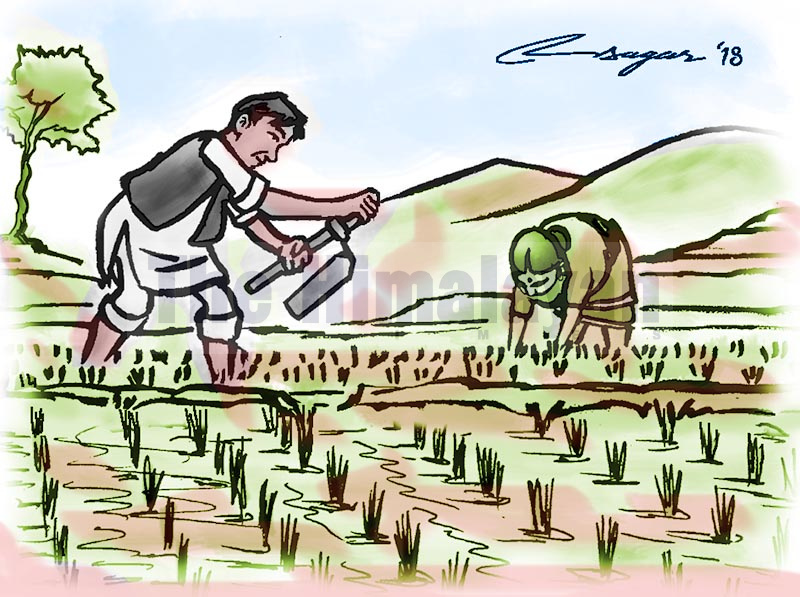‘Agriculture sector could become a source of inclusive growth’
KATHMANDU, JULY 6
The agriculture sector could become a source of inclusive growth when millions are expected to be rendered jobless in the wake of the coronavirus pandemic, according to experts.
Addressing a virtual event organised today to highlight the 2020 Global Food Policy Report (GFPR) in the South Asian context, Swarnim Wagle, chairperson of Institute for Integrated Development Studies and former vice-chair of National Planning Commission, Nepal, emphasised that the country has gone through atypical structural transformation, marked by desertion of agriculture and epic out-migration of young people.
“After COVID-19, reliance on remittances will fall, and there is urgency to find gainful jobs for millions,” he said, adding, “Renewed agriculture can become a source of inclusive growth if we incentivise high-value-to-weight products and food processing, streamline subsidy regime through targeted digital transfers, and invest heavily to combat deficits in hard infrastructure as well as the softer menace of childhood malnutrition.”
Wagle further opined that these efforts need to be undergirded by enhanced capacities across all tiers of Nepal’s newly federated governance structure.
According to GFPR, prepared by International Food Policy Research Institute (IFPRI), the COVID-19 pandemic in South Asia has triggered the largest disruption of livelihoods in human history, affecting over 1.7 billion people. The disruptions to supply chains, lack of access to health and nutrition services, and overwhelmed social protection system are leading to increased food and nutrition insecurity in the region.
According to the report, the COVID crisis has accelerated the importance to reshape our food systems making them more inclusive, sustainable, and resilient.
The GFPR highlights the central role that inclusive food systems play in meeting global goals to end poverty, hunger, and malnutrition, and offers recommendations for making food systems more inclusive for four marginalised groups — smallholders, women, youth, and conflict-affected people. The report also provides analysis on transforming national food system in several countries like Bangladesh and Ethiopia, and advice on development of food system in different regions worldwide.
A version of this article appears in e-paper on July 7, 2020, of The Himalayan Times.






